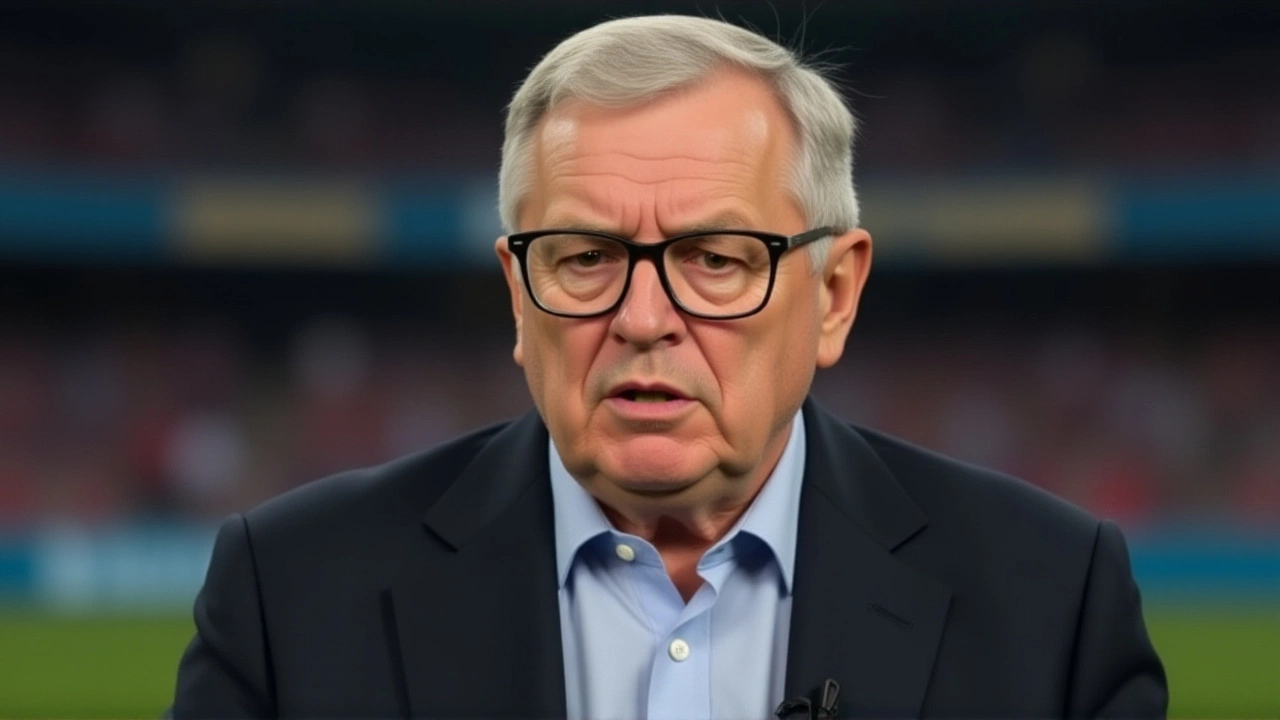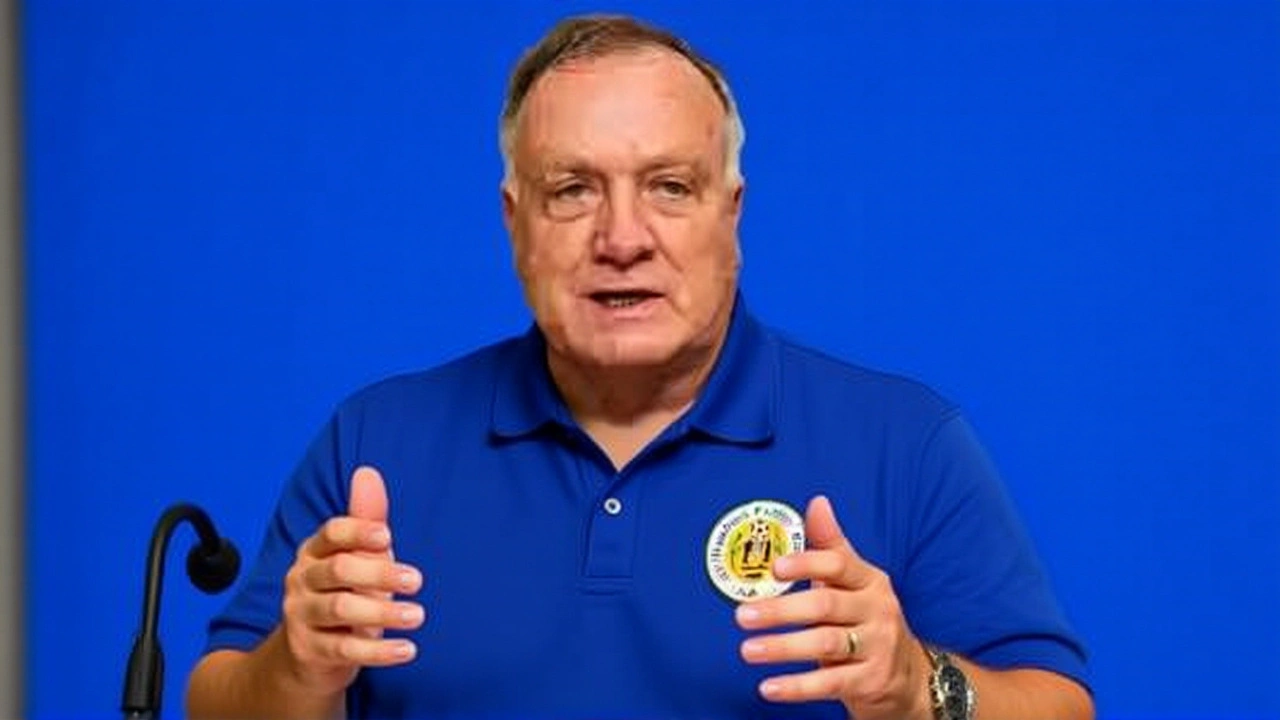On November 19, 2025, a packed Ergilio Hato Stadium in Willemstad fell silent—not from disappointment, but from disbelief. After 90 minutes of nerve-shredding football, Curacao held Jamaica to a 0-0 draw, securing their first-ever qualification for the FIFA World Cup 2026North America. For a nation of just 160,000 people, it wasn’t just a win—it was destiny written in sweat and VAR-reversed penalties.
A Dream Built on Silence and Steel
When Dick Advocaat, the 77-year-old Dutch veteran, arrived in Curacao in January 2024, he found a football federation in crisis. Player salaries were months behind. Training pitches were crumbling. Attendance? A hundred people, tops, at best. "When we started, there were 100 people," Advocaat told the Sunday Observer. "Now it’s 10,000. That’s not progress—that’s a revolution." The turnaround wasn’t magic. It was methodical. Advocaat, who’d coached the Netherlands, Russia, and South Korea, didn’t come to fix tactics alone. He came to rebuild belief. He insisted on professionalism: fixed paydays, structured training, video analysis. And he didn’t shy from the truth: most of the squad was born in the Netherlands. "They’re Curacaoan by heart," he said. "That’s all that matters." That heart was on full display in October 2025, when Kenji Gorré, a Netherlands-born midfielder who once played for Dutch youth teams, scored the opening goal in a 2-0 home win over Jamaica. It was the first time Curacao had beaten Jamaica in a World Cup qualifier. The crowd roared. The island buzzed.The Crucial Draw That Changed Everything
By November, Curacao led Group B with 13 points. Jamaica sat second with 10. The final matchday pitted them against each other again—this time, in a winner-takes-all showdown. A win for Curacao meant automatic qualification. A draw? Still enough. A loss? Back to the play-off purgatory. The match was tense from the first whistle. Jamaica pressed hard. Curacao held deep. In the 89th minute, a Jamaican player went down in the box. The referee pointed to the spot. The crowd groaned. The stadium held its breath. Then came VAR. "All the emotions were flying up in the air," Gorré later told the Guardian. "He goes to the VAR and he says, 'No penalty.' My heart just dropped again—and then we were like, wow. We are actually going to the World Cup. This is destiny. This is meant to be." The final whistle blew. Players collapsed. Coaches hugged. Fans wept. In the stands, a grandmother held up a handmade sign: "100 to 10,000. We believed."A Team of the Diaspora
What made this run extraordinary wasn’t just the result—it was the composition. Every starter in the Jamaica match was born in the Netherlands. Their parents? Mostly from Curacao. Many grew up playing in Amsterdam or Rotterdam, never imagining they’d represent a Caribbean island they’d never lived on. "It’s not about where you’re born," said defender Roderick Miranda after the match. "It’s about who you carry in your blood. When I put on this jersey, I feel my abuela’s hands in my chest. She used to sing us songs about the sea, about Curacao. Now I’m playing for her on the world stage." Advocaat didn’t just assemble a team—he stitched together a cultural bridge. He recruited players based on heritage, not just talent. He gave them identity. And they gave him everything.
Why This Matters Beyond the Island
Curacao is the smallest nation ever to qualify for the World Cup by automatic means. Even tiny nations like San Marino or Gibraltar have never made it this far. Their population is smaller than many English towns. Their GDP is less than that of a single Premier League club. And yet, they beat the odds—not with money, but with unity. This isn’t just a football story. It’s a blueprint. For other small nations. For diaspora communities. For anyone told they’re too small to matter. The Curacao Football Federation had been bankrupt when Advocaat arrived. Now, sponsors are lining up. Youth academies are being built. Kids in Willemstad are wearing Curacao jerseys with pride—not because they’re told to, but because they believe.What’s Next for Curacao?
They’ll be in Group F of the 2026 World Cup, alongside the United States, Canada, and a qualifier from Asia or Oceania. Their first match is scheduled for June 2026 in Toronto. The squad will be smaller than most, but their spirit? Bigger than any stadium. Advocaat, 77, says he’ll step down after the tournament. "I’m not here to stay," he told reporters. "I’m here to hand over something better." And he has. A nation that once had 100 fans now has a generation of kids who know: if you believe, even the smallest island can reach the world.Frequently Asked Questions
How did Curacao qualify for the 2026 World Cup?
Curacao qualified by finishing first in Concacaf’s Group B of the final round of qualifiers. They earned 16 points from six matches, including a crucial 0-0 draw against Jamaica on November 19, 2025, which secured automatic qualification. Only group winners advance directly; second-place teams enter play-offs. Curacao’s wins over Saint Lucia, Aruba, Barbados, Haiti, and Bermuda, plus their draws with Jamaica and Trinidad and Tobago, gave them the edge.
Why is Curacao’s squad mostly Dutch-born?
Curacao, a former Dutch colony, has a large diaspora in the Netherlands. Many players, including Kenji Gorré and Roderick Miranda, were born and raised in Dutch cities but chose to represent Curacao through ancestry. Advocaat actively recruited these players, emphasizing cultural connection over geography. FIFA allows eligibility through heritage, making this a common strategy for smaller nations with global diasporas.
What role did Dick Advocaat play in Curacao’s success?
Advocaat transformed Curacao’s football culture from broken to professional. He resolved financial chaos, secured player payments, and instilled discipline. His international experience helped elevate tactical awareness and mental resilience. He didn’t just coach—he gave the team identity, belief, and structure. His leadership turned a struggling side into World Cup qualifiers, and his departure after the tournament signals he built something sustainable.
How did the crowd at Ergilio Hato Stadium change so dramatically?
When Advocaat arrived in 2024, matches drew about 100 spectators. By October 2025, the Ergilio Hato Stadium sold out 10,000 seats for the Jamaica game. The surge came from improved team performance, transparent leadership, and community pride. Local businesses sponsored tickets for students. Radio stations broadcast matches live. Social media campaigns like #CuracaoToTheWorld went viral. The stadium became a symbol—not just of football, but of national rebirth.
What’s the significance of the VAR decision in the Jamaica match?
In the 89th minute, Jamaica was awarded a penalty that would have tied the match and potentially cost Curacao qualification. VAR review showed no foul—just a player stumbling after contact. The reversal sparked euphoria. It wasn’t just a call—it was symbolic. After years of being overlooked, Curacao’s fate was decided not by luck, but by the system. That moment crystallized their journey: fair play, resilience, and belief rewarded.
Will Curacao be competitive in the 2026 World Cup?
They won’t be favorites—Group F includes the U.S. and Canada. But they won’t be pushovers. Advocaat’s team is disciplined, physically fit, and mentally tough. They’ve already beaten Jamaica and held them scoreless twice. With a strong defense and quick counterattacks, they could steal a point or even a win. More importantly, they’ll enter the tournament with something no other team has: the weight of a nation’s dream on their shoulders.
